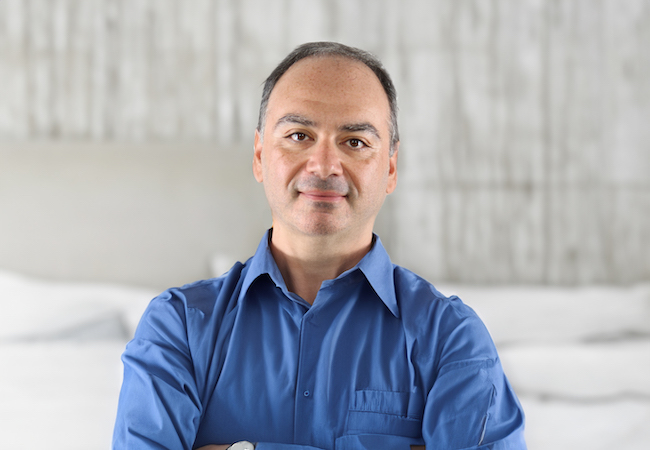
The latest Associate Research Professor to join the IMDEA Software Institute, Georgios Portokalidis, was born and raised in Alexandroupolis, a small coastal town in northeastern Greece. He has been with us for a couple of months now and we have learned some very interesting things about him through this interview, such as that he works on system and software security focusing on low-level software such as operating systems and software for key Internet services such as the Web, DNS, etc.
At what point did you decide to study a scientific career? Are there any anecdotes that you can tell?
I wanted to study something related with computers from a young age (around 11-12). We did not have a computer in the house but after seeing the computers at friends’ houses that was it, I was hooked.
I remember I used to buy PC magazines just to keep up with what was going on, even though I didn’t have a computer yet. It took me a few years to save enough money and get a really slow 8088 PC.
I got my BSc in computer science from the University of Crete. I then went abroad for an MSc in CS in Leiden University in the Netherlands. There I started working with Prof. Herbert Bos who eventually became my PhD advisor in VU Amsterdam. After that I went for a postdoc at Columbia University in New York.
What attracted you to the IMDEA Software Institute?
The Institute is renowned for each security research and it’s one of the top places in Europe.
Madrid is also a great city with great quality of life. Moreover Spanish culture is similar to Greek making this an easy transition.
Why is your line of research important? How might it relate to society?
Systems are composed of many layers of software and, eventually hardware. Each layer relies on the layer below to work correctly and as intended. Therefore, it is crucial that software running directly on the hardware, like operating systems, maintain their integrity.
Since everything modern society does involves the use of computers, it is crucial to ensure that they are not controlled by unauthorized or even malicious parties.
What are you working on now and what are you planning to deliver in the near future?
Two of the things I’m excited about are:
Automatically isolating software components from each other, also known as sandboxing. We recently had a paper on CCS23 where we create better sandboxes for binary server software.
We are creating a new design to offload security checks from applications to specialized hardware applying security operations in parallel to application execution.